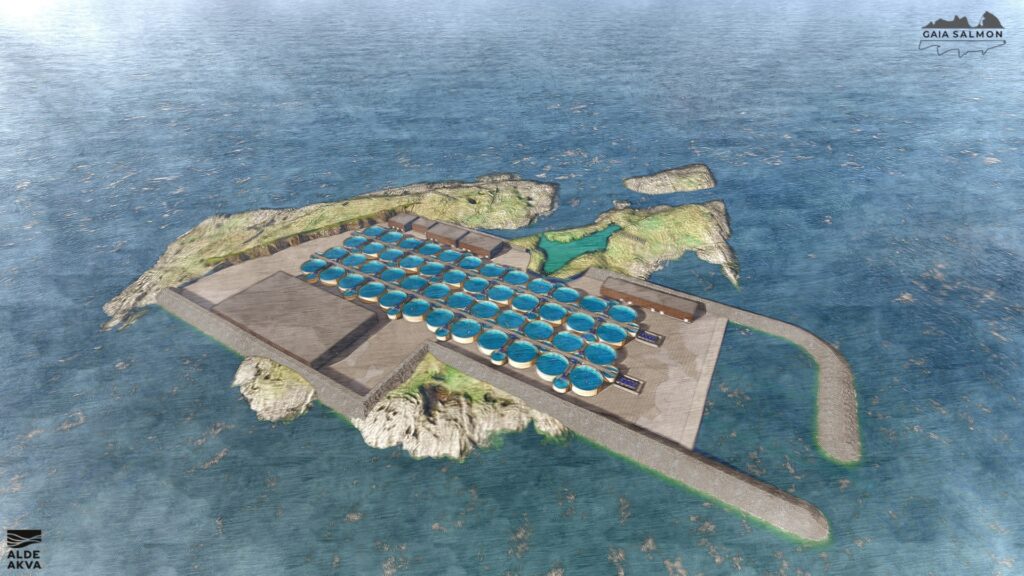Plans to blow up islets to build large post-smolt facility

A row is brewing over plans for a new post-smolt facility in the north of Norway – which will involve blowing up two small islands to make space for the construction.
The company behind the project is Gaia Salmon, which plans to produce between 8,000 and 10,000 tonnes of post-smolts weighing up to 800 grams annually, once the building is operational.
The site is at the Ross Islands at Traena in Nordland, where there are more than 477 very small islands. Gaia Salmon says the area involved covers about 12 to 14 football pitches in area.
The plan is creating no little controversy and has attracted a number of protests although the overall view from the local community is fairly positive, because the project would create many jobs for local people.
However, various national and regional conservation groups are calling for the for the project to be shelved.
Frode Solbakken of the Nature Conservation Association in Nordland told the broadcaster NRK: “We cannot blow up large parts of our coastal nature because we want to get rid of salmon lice on the farmed salmon.”
The local (Labour party) mayor Trond Vegar Sletten, and the Traena municipality, however, are positive about the plans because it will provide up to 50 jobs, leading to more people settling in the area and building new homes. But the mayor admits it was not an easy decision to make.
He told national broadcaster NRK: “After all, we want to be a viable society. We who live here have faith in the future. But then we also have to be able to make these tough decisions on a sound basis.”
He also stressed the importance of Gaia taking steps to ensure that as many of the jobs as possible are actually taken up by local people.
Gaia Salmon general manager Erik Hernes told NRK that the company respected there were different opinions about the plan.
He said: “ We are concerned with safeguarding and developing natural diversity at the same time as we develop industry and the local community. We collect all sludge in the plant and reuse this for energy for use in the plant.”
In that way, the company hopes to significantly reduce emissions at sea, while at the same time reducing its CO2 footprint by more than 30%. Gaia also says the facility will be a world leader in energy consumption.
Gaia Salmon describes itself as a land based fish farmer with a long term goal to become a complete salmon group, operating the whole cycle from roe to harvested fish.

